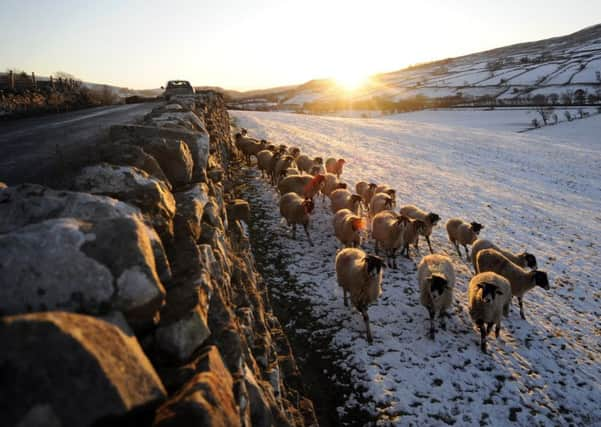Kevin Beaty: Rural and urban in the UK should be one; not competing. We should be working together in a sense of common fellowship


The real question here is what do we want from the countryside and rural areas? And perhaps fundamentally, what is the countryside for? A playground for everyone? A carbon sink to placate our guilt at pumping out pollution? If these are the answers then go ahead – pay farmers to plant trees. But that is not what rural life really is.
I am the leader of Eden District Council, the most rural local authority in England. We sit between the Tees Valley combined authority to the east, the nuclear developments on the industrial coast of Cumbria to the west , the ‘string of pearls’ of Sheffield, Leeds, Manchester and Liverpool to the south and the new ‘Borderlands’ cross border initiative and the Scottish central belt to the north. All these areas are around one and a half to two hours travel time from each other. A true hinterland wedged between two National Parks, the Lake District and the Yorkshire Dales.
Advertisement
Hide AdAdvertisement
Hide AdI spend a good deal of my time fighting for better funding for our local services, consistently under-funded compared to our urban neighbours. I struggle with an outdated local government structure which is paralysed in a Groundhog Day of debate on whether to be unitary, combined or devolved. It sometimes feels like a battle between rural areas and our new metropolitan city regions which are often first in the queue for funding.
Government (of all different party colours) sometimes seems to have forgotten that people live and work and thrive in our rural areas, and we have so much to offer by way of our people, our resources (water and power), lifestyle and housing delivery. I don’t blame them. As part of the EU, it was Brussels which set the rural agenda for the past 30 years.
Many of you will pass through my council area as you travel to Scotland or visit the Lakes or Dales via the West Coast Main Line or the M6 motorway. We have amongst the lowest average wages in the UK, yet were reported as one of the happiest areas in the country – both of these from ONS surveys, so it’s true that money isn’t everything.
But I return to my previous question: what is the countryside for? For a start, it’s not just farming and the environment, although these inter-dependent things shape what you see and provide 60 per cent of the nation’s food. Agriculture and food are a larger industry than aerospace and car manufacturing combined so it’s encouraging to see a Government agri-tech strategy, but where is the ‘Rural Industrial Strategy’?
Advertisement
Hide AdAdvertisement
Hide AdIn Eden we believe we have a big part to play in the Northern Powerhouse. We are strategically placed on the M6 trans-Pennine crossroads with the upgrade of the A66 trans-Pennine route makes us a great place to live and do business, especially if that business is logistics-focused.
We believe the emerging technology of autonomous freight and increased broadband speeds will lead to our area being ever closer to the marketplace.
In an era of flexible working, why would you not want to live within minutes of the Lake District fells and Yorkshire Dales, work for the world-beating nuclear tech industry or a high powered city firm, but be able to be in London for 9.15am by catching the 6am train?
The countryside delivers hugely for our urban areas – it negates pollution and can be a flood defence or a source of power and water. These aspects of natural capital are provided by and from the countryside so maybe we should be compensated for these to pay for our dilapidated infrastructure and support our services. Local government funding is based on population within an area, as is the funding for roads and crucially, more recently, the size of funding in devolution deals. Rural areas cover 85 per cent of the land mass with only 20 per cent of the population to pay for rural local government services like roads. You can see the potential for under-funding.
Advertisement
Hide AdAdvertisement
Hide AdRural and urban in the UK should be one; not competing. We should be working together in a sense of common fellowship. Rural areas should be linked to their metropolitan neighbours to share the burden of health and infrastructure costs. If the ‘One Yorkshire’ devolution deal comes off, it will be interesting to see if the rural and urban areas within it can work as one authority to do just that.
I am setting up a think tank to bring together the brightest and the best to discuss how, as our city-regions grow, we can use the countryside as part of the wider economy to link together with the metropolitan cities, to be a part of a united country inter-linked by technology, sharing a common history and source of governance. Urban and rural together.
Kevin Beaty is leader of Eden District Council, This piece first appeared on the ConservativeHome website.